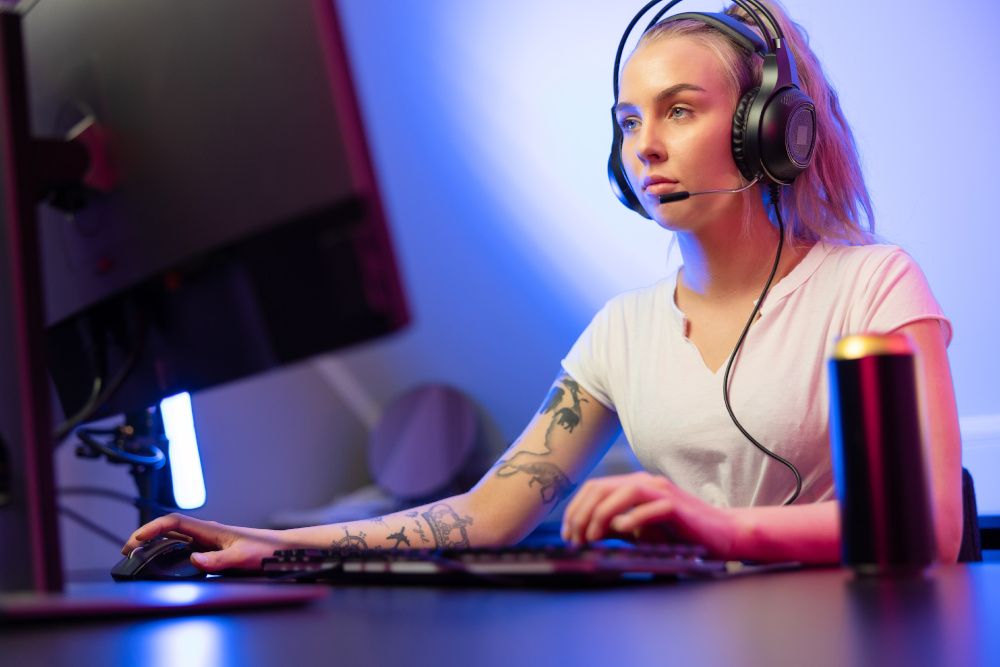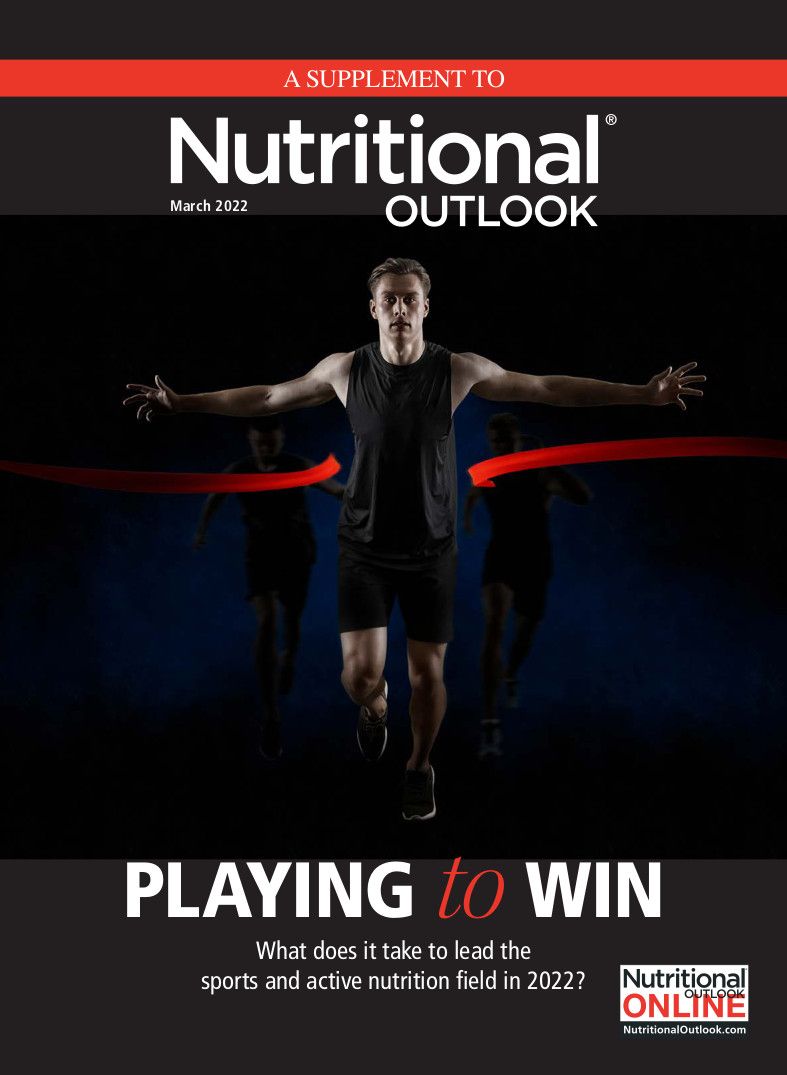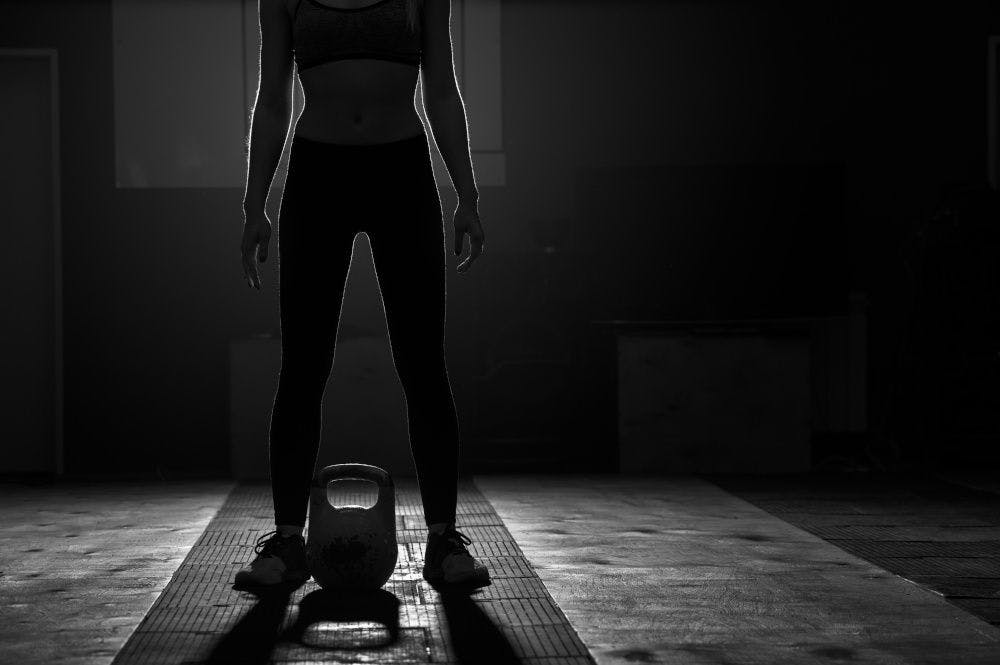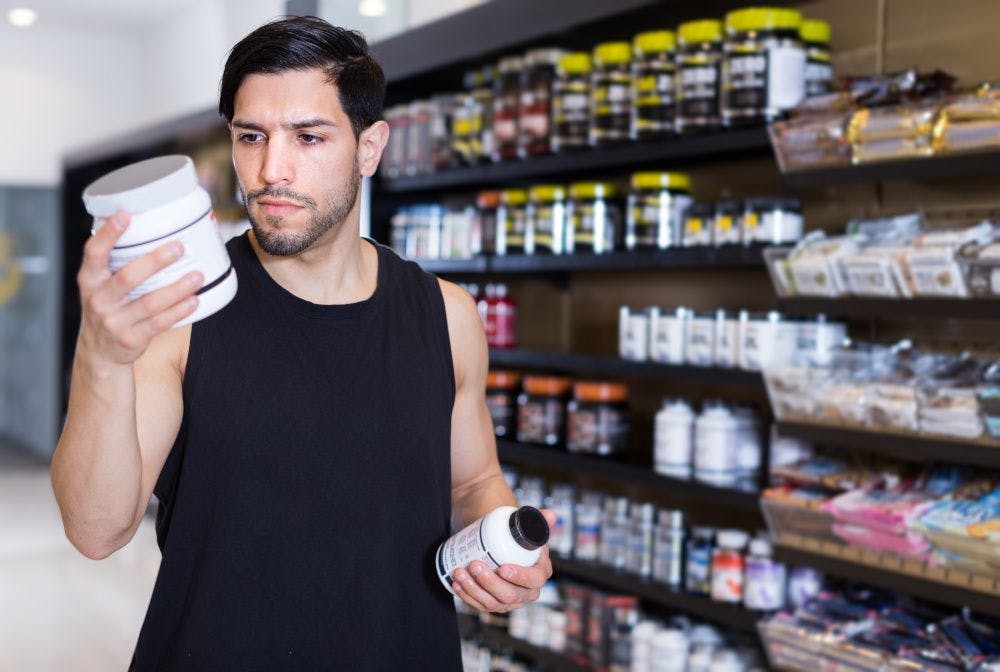As is the case with esports enthusiasts themselves, demand for esports supplements just keeps on maturing. And why shouldn’t it? Digital gaming—whether professional or armchair—is more than just a serious business; it’s a bona fide cultural phenomenon.
This is in stark contrast to gaming’s early days, when the market “comprised mainly ‘hardcore’ gamers,” recalls Euan Costello O’Reilly, business development manager for Play Beyond Nutrition (Bristol, UK). “But in the last five years, the explosion in gaming uptake among previously casual gamers has injected huge financial growth into the market.”
How huge? Newzoo research1 pegged total global esports revenues at $1.084 billion in 2021, with year-on-year growth of 14.5%, driven largely by media rights and sponsorship. So as the sector scales new heights—and embraces new competitor-consumers—supplement brands will have to up their own games vis-à-vis product innovation, ingredient science, and delivering the formulations that give these 21st-century athletes an edge.
Gaming’s Gains
Again, citing Newzoo research, O’Reilly notes that gaming’s value looks set to grow impressively by 2025, “reflecting the booming economy with esports, as well as acceleration from the pandemic,” O’Reilly says.
But the sector’s strength is measured in more than mere dollars. “The gaming world keeps growing from mobile, PC, and console users to those participating in streamed content via a range of digital devices,” observes Maria Stanieich, marketing manager, Kyowa Hakko USA (New York). “The ecosystem of gamers makes up a sizeable audience, and they’re looking for a competitive edge that fits their lifestyles.”
Into the Mainstream
Increasingly, that edge comes from nutritional supplements, which are gaining fans across the esports skill spectrum—and not just among players competing at the highest levels.
We witnessed a similar evolution in traditional sports nutrition. Initially popular mainly with competitive athletes and confirmed gym-goers, sports nutrition supplements are “now seen as crucial elements in any sportsperson’s diet, from weekend warriors to professional footballers,”O’Reilly says. By that same token, “Esports supplements have seen their own explosion in mainstream use over the past few years.”
Elite Influence
Credit for their spread goes, in part, to the advocacy of professional esports athletes.
“Aspiring gamers realize that they can make careers out of doing what they love,” O’Reilly points out—“which is something that wasn’t possible a decade ago.” High-profile performances are netting these elite gamers the same flurry of influential product sponsorships and endorsements that their pro-sports counterparts enjoy.
That being the case, amateur gamers and even spectators can’t help but notice which products their idols support. And more often than not, they want in on the action, too.
As O’Reilly says, “Consumers do seem to respond to influencers’ endorsements. Trusted voices can alleviate concerns around efficacy. But ultimately, branding is essential.”
Tips for Success in the Esports Space
We asked esports experts for their tips on how to build and market a supplement that’s sure to rise up the rankings.
Tip 1
“First, make safe products in a quality environment, and don’t make promises for them that they can’t deliver. Understand your supply chain, especially around raw materials going into energy products—it’s easy for adulteration to occur in this category, and a brand is only as strong as the weakest link in its supply chain. And understanding your risks is essential: Do the research to formulate efficacious products, and then test them to ensure they’re safe from adulterants and delivering on their promises.”
David Trosin, managing director, NSF Health Sciences Certification, NSF International (Ann Arbor, MI)
Tip 2
“Esports athletes need solutions that work quickly and provide tangible benefits that they can feel and that persist over time. These solutions also need to fit seamlessly into gamers’ lifestyles in products they already consume, such as snacks and drinks. Companies need to be mindful of these athletes’ dietary requirements, given their high levels of physical and mental training. And ingredients that can be formulated without caffeine will also be key, as many gamers demand products without caffeine to avoid jitters and crashes after long play. But probably most importantly, these products should be studied in actual gamers.”
Elyse Lovett, MS, MBA, vice president, marketing, Nutrition21 (Harrison, NY)
Tip 3
“Be transparent: Consumers want to know what they’re getting. Understand gamers’ evolving needs, and marry them with the leading nutritional insights and expertise. Stay true to your core purpose.”
Euan Costello O’Reilly, business development manager, Play Beyond Nutrition (Bristol, UK)
Tip 4
“As esports matures, we’re starting to understand how the marketing approach for a gaming consumer should differ from that for a traditional fitness or nutritional-supplement buyer. For gamers, you need a clear, unique, and authentic approach as a brand. You need to understand whether you’re targeting a passionate esports athlete, or more casual fans of a player or team. And you need to know and excel at platforms like Twitch, Discord, and Twitter, whereas most non-gaming brands are dedicating resources to Instagram and TikTok. With the cost of digital advertising and sponsorship with top gamers skyrocketing, the barrier to entry is so much more challenging than it was just a few years ago. There’s still a great deal of opportunity, but the maturation of esports over the last two to three years means that outsiders can’t organically enter the space and thrive like they once could.”
Jarrod Jordan, chief marketing officer, Iovate Health Sciences (Oakville, Ontario)
Tip 5
“We see several conditions driving growth in 2021 and beyond. Key interest areas like focus, attention, memory, and eye fatigue have already attracted a large user base, but now is also the time to incorporate mood, stress, and overall health into formulations as the esports community starts to face stress and burnout.”
Maria Stanieich, marketing manager, Kyowa Hakko USA (New York)
Fueling the Fun
The power for sponsorship isn’t lost on Elyse Lovett, MS, MBA, vice president, marketing, Nutrition21 (Harrison, NY).
“Corporate involvement and big purses for competitions have grown significantly in just a handful of years,” she points out. And with serious prize money driving viewership, she adds, “Companies of all kinds have become interested in esports sponsorships”—including food, beverage, and nutrition brands.
That interest wouldn’t have materialized if digital athletes weren’t increasingly mindful of the relationship between their diet and performance—and for good reason: Digital gaming is taxing.
“By most accounts, today’s professional gamers train on a high level that includes maintaining peak physical and mental fitness, just like their professional-sports counterparts,” Lovett says. “This often entails a hardcore training regimen and a tight focus on nutrition and diet—including supplementation.”
These aren’t your stereotypical snack-scarfing couch potatoes of yesteryear. On the contrary, results of a 2020 University of Queensland survey2 involving 1,400 participants from 65 countries show that esports players are as much as 21% healthier than the general population, drink less, and smoke minimally. Moreover, the fact that the top 10% of gamers indexed as more physically active than lower-level competitors suggests that physical activity genuinely influences esports performance—and for the better.
Tough Customers
If gamers are increasingly cognizant of nutrition’s performance-enhancing power, they’re also increasingly exacting in which nutritional products they choose.
Yes, convenience still counts to these consumers. “Formats like ready-to-drink beverages, powdered drink mixes, bars, and energy crystals typically work best for gamers,” Lovett says.
Adds Stanieich, “There’s been notable demand for RTDs and quick-to-consume forms like gummies, jelly beans, fast chews, and easy melts. We’re also seeing new demands for focus and non-caffeine energy.”
But just like the rest of the population, gamers are reading labels and leveling more scrutiny at what they find. “As such,” O’Reilly says, “they’re looking for healthy alternatives to the sugar- and caffeine-filled products they’ve relied on for so long.”
Even so, O’Reilly continues, “There’s a vast range of personalities in the consumer base. Many are very conscious of ingredients, but their main concern remains efficacy. With most aspiring e-athletes coming from a skeptical position, they’re looking for instant results to help them improve.”
But “instant” shouldn’t equal crashes or jitters—which is why “an energy claim alone is no longer sufficient to meet gamers’ needs,” Lovett says. Instead, the name of the game today is sustained energy, paired with ingredients for mental focus, optimized visual processing, and nerve and muscle support.
Beyond Cognition
If these look like the same benefits consumers look for in cognitive-support products, they are. But the demands of esports consumers go well beyond cognition alone.
As Stanieich explains, “Where esports consumers differ is in seeking to train the mind—supporting mental and eye health to improve their gaming performance and unlock the maximum potential between the mind and body.”
Gamers have to react to constantly shifting onscreen stimuli within milliseconds, for example—“or else face defeat,” she says. And they have to do so for hours on end, often with little break.
“So while there may be similarities between the general population and esports enthusiasts in the types of benefits they look for,” Stanieich concludes, “the scope is different.”
And studies show that esports athletes experience the same degree of stress as do traditional athletes, O’Reilly adds. “This comes as physiological and psychological pressure, including performance anxiety, fear of failure, and tensions resulting from miscommunication, particularly in team sports,” O’Reilly notes. “The ability to stay calm and composed in these situations is crucial and has been something that sports scientists and nutritionists work closely with athletes to achieve.”
Prove It
Gamers are paying attention to how brands help them achieve it, too, doing their due diligence and choosing products that strike them as safe for their sport.
“Consumers in general are becoming more sophisticated and discerning about their supplements,” says David Trosin, managing director, NSF Health Sciences Certification, NSF International (Ann Arbor, MI), “and that trend will only continue. Brands that provide better scientific support, greater transparency, and clarity on the quality of their products will win the day.”
Lovett agrees. Ingredients that have been studied in actual gamers and that provide the benefits they value—energy, focus, accuracy, reaction time, et al—“will differentiate an esports product from a cognitive-support one,” she says.
For example, Nutrition21’s nooLVL—a patented, caffeine-free complex of bonded arginine silicate plus inositol—is the first cognitive-performance ingredient studied in gamers, Lovett claims, with a 2019 double-blind placebo-controlled trial3 demonstrating increased perceived energy within 15 minutes of a single dose, and improved reaction time and decision accuracy after 60 minutes of gaming.
“A more recent study4 that examined whether nooLVL had effects on cognitive function prior to and following a one-hour gaming challenge found evidence of enhanced short-term memory, reaction time, reasoning, and concentration among gamers following a single dose,” Lovett adds.
Stanieich notes that the eye is “a direct extension of the brain” and that prolonged screen time can lead to dryness and fatigue. Kyowa Hakko’s Eyemuse is the first postbiotic positioned to help gamers support eyes and improve their healthy function, she says, with evidence indicating that it reduces eye fatigue5 as well as the stiffness in the waist and shoulders such fatigue can cause6.
Stanieich also calls attention to Kyowa Hakko’s clinically studied nootropic Cognizin citicoline. It supports mental energy, memory, focus, and attention by facilitating membrane fluidity and plasticity; fortifying cell-membrane structures; and enhancing neuronal communication, she says, adding that a motor-speed finger-tap test7 among adolescent males taking 250 mg or 500 mg exhibited improved attention and significantly increased psychomotor speed compared to placebo.
Her conclusion: “Combining Cognizin and Eyemuse for a comprehensive formulation that supports brain and eye health will provide future esports formulations a competitive edge.”
Performance for All
And consumers needn’t be actual esports competitors to benefit from it.
“There’s an argument to be made that not just competitive gamers but the work-from-home crowd and those who just spend a lot of time on screens can all benefit from the same key ingredients found in something like an XP Sports product,” observes Jarrod Jordan, chief marketing officer, Iovate Health Sciences (Oakville, Ontario), maker of the XP Sports brand. “Being able to successfully develop a product with all those types in mind, not to mention a marketing and distribution strategy that makes sense to them, is how you become successful in this space.”
So is following the same principles that drive successful supplement formulation in general. In other words, says Jordan, “We’ve learned that esports consumers want products that genuinely work, taste really good, and give them a plethora of flavors to choose from.”
References
- Newzoo. “Newzoo’s Global Esports & Live Streaming Market Report 2021 | Free Version.” Published March 9, 2021.
- Trotter MG et al. “The association between esports participation, health and physical activity behaviour.” International Journal of Environmental Research and Public Health, vol. 17, no. 19 (October 8, 2020): 7329
- Tartar JL et al. “A prospective study evaluating the effects of a nutritional supplement intervention on cognition, mood states, and mental performance in video gamers.” Nutrients, vol. 11, no. 10 (October 1, 2019): 2326
- Sowinski R et al. “Effects of inositol-enhanced bonded arginine silicate ingestion on cognitive and executive function in gamers.” Nutrients, vol. 13, no. 11 (October 24, 2021): 3578
- Yamazaki T et al. ”Lactobacillus paracasei KW3110 suppresses inflammatory stress-induced premature cellular senescence of human retinal pigment epithelium cells and reduces ocular disorders in healthy humans.” International Journal of Molecular Sciences, vol. 21, no. 14 (July 18, 2020): 5091
- Morita Y et al. “Effect of heat-killed Lactobacillus paracasei KW3110 ingestion on ocular disorders caused by visual display terminal (VDT) loads: A randomized, double-blind, placebo-controlled parallel-group study.” Nutrients, vol. 10, no. 8 (August 9, 2018): 1058
- McGlade E et al. “The effect of citicoline supplementation on motor speed and attention in adolescent males.” Journal of Attention Disorders, vol. 23, no. 2 (January 2019): 121-134

















